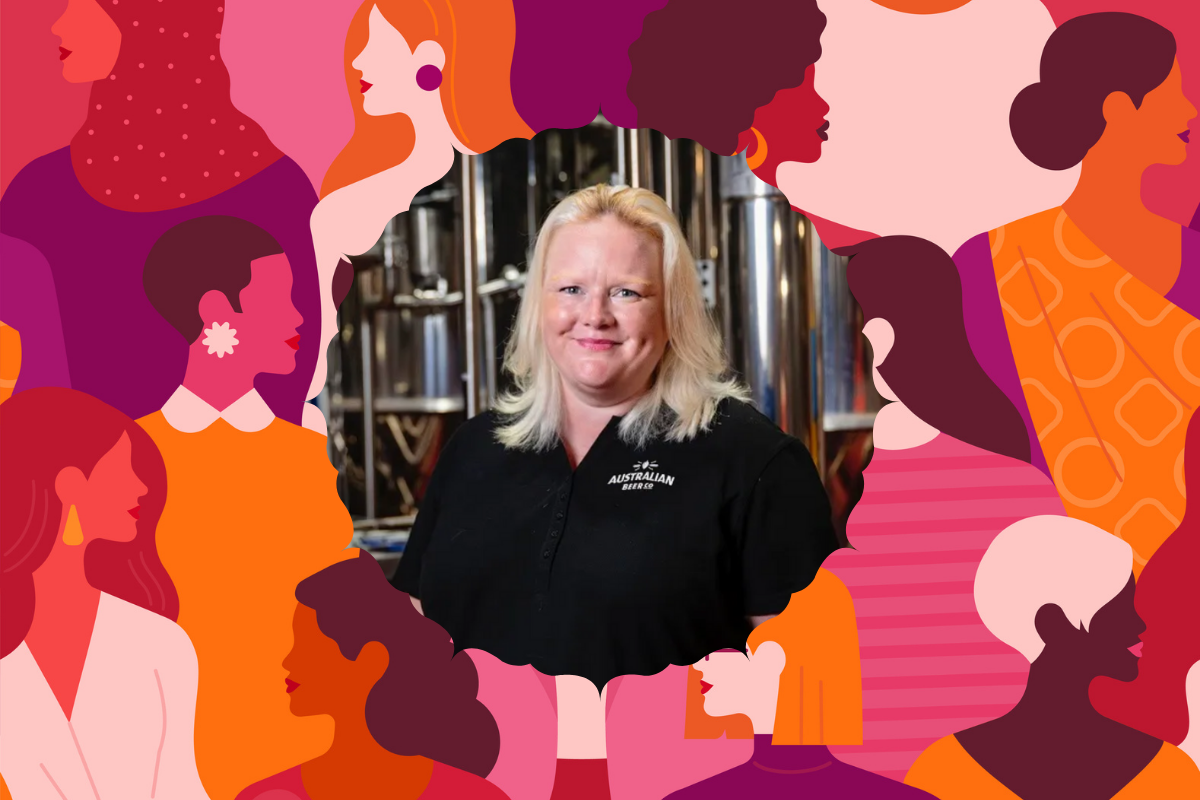On International Women’s Day every year, the voices and stories of women across the world are celebrated, as we address the issues that cause gender inequality and diversity. But despite these issues remaining, such voices and stories take a backseat once the day is done.
We think it’s worth doing the opposite and actively challenging the issues that create these gaps in our industry. So, we’ve launched this weekly series, Wednesday Women, where we’ll profile the stories of the inspiring women in this great and wide industry.
Today we speak with Australian Beer Co.’s Brewing Manager, Emma Walton.
Walton is dedicated to producing beer of high and consistent quality, with a passion for the entire brewing process, from start to finish.
Walton first entered the brewing industry while studying chemistry in the UK, where she fell in love with the industry during a student placement.
“As part of that degree, you have to spend a year in industry. One of the companies that popped up was Bass Brewery, and I thought it sounded quite cool. When I made the choice, it was either pharmaceuticals or beer. As a 19-year-old, I thought, ‘Brewing has better samples.’
“I applied for that position, ended up working in the brewery lab, and basically never left. What was supposed to be one year turned into 11,” Walton said.
Working in the brewery lab was a useful place to start for Walton, as it gave her an overview of the entire brewing process.
“The people who worked there were wonderful as well, and it was great to hear the tales of times gone by from the older, retired staff who used to work there. You fall in love with the brewery, the people, and the process,” she said.
Later, Walton moved to Australia from the UK, and began working with Lion. Consumer tastes and the industry differed between the two countries.
“When I first came out here, I noticed two things: the beer is more highly carbonated, and it’s a hell of a lot colder than in the UK. When I moved, there was a drive to serve beer at minus one to two degrees, and that’s just too cold to drink. I can understand it with this climate, but it’s just too cold to actually get the flavours. In the UK, it’s served at around five to six degrees, which is better. I think the ideal temperature for tasting would be around 12 degrees, but over here, that’s just too warm,” she said.
Walton also noticed a change in beer styles in Australia compared to the UK.
“In the UK, beer was predominantly lager, but when I moved to Australia, I felt that there was a much wider variety of styles,” she said.
However, lager is growing in popularity, which Walton attributes to consumers turning to mainstream beer amid the cost-of-living crisis.
“With mainstream lager, you know what you’re getting. The quality is there and the consistency is there. Brewing a lager is more technically challenging because you’ve got nowhere to hide. You can’t hide behind a mountain of hops. You want it clean, you want it crisp, with no off flavours or aromas. I’m a passionate supporter of lager,” she said.
In her role at Australian Beer Co, Walton has been able to engage with more aspects of the production and brewing process than she had in other breweries.
“It’s good to see things go from concept to finish, doing the NPD and actually seeing it through the process and seeing your can on the shelves in the bottle shops. That’s an amazing feeling. When you work for the bigger companies, the NPD is often already done, and you’re scaling it up from the NPD stage to the production stage,” she said.
One of Walton’s recent new products has been the Son of a Nun non-alcoholic beer, which was also a learning experience.
“I’ve had to gain extra knowledge to brew a non-alcoholic beer, to ensure that we’ve done everything right and there’s no microbial contamination, since you don’t have the protection of the alcohol,” she said.
Ultimately, Walton is inspired and driven by the dedicated, welcoming people she works alongside in the brewing industry.
“I work with a very passionate team here, and the suppliers we work with are passionate as well,” she said. “I’ve always been surrounded by amazing people, and I’ve always found that there’s no competition between brewers. There’s competition between sales and marketing, but a brewer looks at another brewer and wants to work together.”

